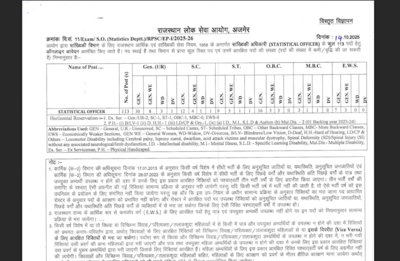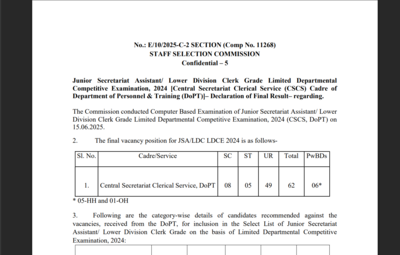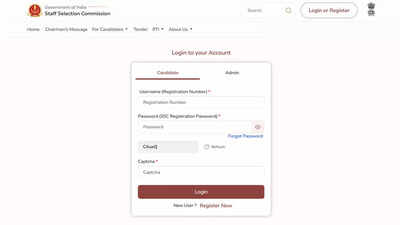SC clears UPSC’s plan to release provisional answer keys after prelims: Will it enhance transparency or add complexity?

NEW DELHI: The Supreme Court has approved the Union Public Service Commission’s (UPSC) proposal to release provisional answer keys immediately after the Civil Services Preliminary Examination, allowing candidates to raise objections before results are declared. The move marks a significant policy shift in the country’s most competitive recruitment process.A bench comprising Justices P.S. Narasimha and A.S. Chandurkar disposed of a batch of petitions challenging the UPSC’s previous practice of delaying answer key publication until the final results. The Court noted that the Commission’s latest affidavit reflected a “conscious and well-considered decision” following extensive internal deliberations.Provisional keys to be published post-examAs per the affidavit submitted by UPSC, the Commission has committed to implementing a revised process. This includes publishing the provisional answer key shortly after the Preliminary Examination, seeking objections from candidates—each supported by three authoritative sources—and placing these objections before subject experts for review. The finalised answer key will be used to determine the Preliminary Examination results. The final key will be released only after the declaration of final results.This change follows a legal campaign led by aspirants Vidushi Pandey and Himanshu Kumar, who filed petitions demanding greater transparency in the exam process. They argued that delayed disclosures deprived candidates of the opportunity to evaluate their performance and learn from their mistakes.Petitioner Vidushi Pandey, in a statement to ANI, described the verdict as a “historic victory for millions of civil service aspirants” and said, “Now we will be free from fear and anxiety after the Preliminary Examination and will also have an opportunity to improve ourselves.”Court-monitored reforms after years of resistanceDuring the hearings, the Supreme Court had appointed Senior Advocate Jaideep Gupta as amicus curiae. The petitions were shared with him for assistance in evaluating the legal and procedural implications of the UPSC’s disclosure policy.Until 2023, UPSC maintained that answer keys, cut-off scores, and marks should be released only after the complete exam cycle, including interviews. This stance persisted despite repeated recommendations from Parliamentary Committees and the Central Administrative Tribunal (CAT) urging early publication to promote accountability.As reported by ANI, UPSC, through its affidavit, acknowledged the necessity for reform. The Commission cited suggestions received during the litigation and the responsibilities of a constitutional body as key reasons for its policy change.Implementation to begin promptlyUPSC has stated its intent to implement these measures “as expeditiously as possible.” The Supreme Court’s approval brings closure to a long-standing debate and sets a procedural precedent likely to influence other competitive examinations in India.






